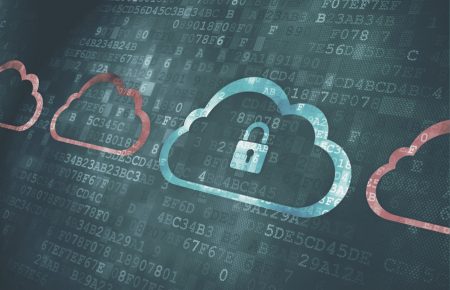Besides the bank penalties you incur, you will have an outstanding debt to your landlord until you can pay the rent. The bank may be more willing to work with you if it sees that you earnestly want to fix the problem.
- If the maker has an overdraft protection agreement with its bank, then the bank will lend the shortfall to the maker, so that no checks will bounce.
- In the meantime, he suspends business with ABC and requests interest from ABC for its unpaid balances.
- Financial institutions such as credit card companies often forgive penalties for established customers with excellent payment histories.
- Banks aren’t required to notify an account holder when a check they signed bounces due to non-sufficient funds.
If you write a check for an amount that you had insufficient funds to cover, your bank will most likely charge you a non-sufficient funds (NSF) fee as well as potentially an overdraft fee. The business to which you wrote the bounced check may also levy a charge against you for the lack of payment. Other consequences of a bounced check include businesses refusing to accept your checks, a reduction of your credit score, and possibly even legal trouble. In other cases, if a check bounces, the payee reports the issue to debit bureaus such as ChexSystems, which collects financial data on savings and checking accounts. Negative reports with organizations like ChexSystems can make it hard for consumers to open checking and savings accounts in the future.
Dictionary Entries Near rubber check
If there isn’t enough money in your account to back the check, the landlord doesn’t receive your payment. Bounced checks and penalty fees can snowball quickly and put an account holder in a financial hole, so it’s important to get your finances under control as quickly as possible. In some cases, if you write a check without enough money in your account to cover it, your bank might decide to cover the amount for you. However, the bank will then charge you an overdraft fee, which is $26.61 on average, according to Bankrate’s study.
These include staying vigilant about your account balance, considering alternative payment methods and adding safeguards such as overdraft protection and linked accounts. When there are insufficient funds in an account, and a bank decides to bounce a check, it charges the account holder an NSF fee. If the bank accepts the check, but it makes the account negative, the bank charges an overdraft fee. If the account stays negative, the bank may charge an extended overdraft fee. Consumers can also fund a savings account and link it to their checking account to cover overdrafts. Alternatively, consumers may opt to write fewer checks or use cash, debit cards, and immediate online payments such as mobile wallets, PayPal, or the like for discretionary spending.
Steve grants his customers 30 days to pay their bills, after which he begins charging interest on the unpaid balance. Understanding the concept of a rubber check and its potential consequences is crucial for anyone navigating the world of finance. Finance plays a vital role in our lives, affecting everything from how we manage our money to future planning. In the realm of finance, one common term that individuals may come across is a “rubber check.” But what does this term mean, and how does it impact our financial well-being? In this blog post, we’ll delve into the concept of a rubber check, exploring its definition, consequences, and potential solutions.
Besides NSF or overdraft fees charged by your bank, the payee might penalize you, too. The landlord who got the rubber check for your monthly rent could charge you a penalty. A rubber check is a check that is not paid (or honored) by the bank on which it is drawn.
When you don’t have enough funds to cover a check, your bank likely will charge you an NSF fee. The average NSF fee, according to Bankrate’s 2023 checking account and ATM fee study, is $19.94. A rubber check also causes bank fees for the maker of the check and for the depositor of the check. If the fees are overlooked initially, they will be adjusting items to the balance per books in the bank reconciliation.
If this system connects the check you’ve just presented for payment to a history of unpaid checks, the merchant will decline your check and ask you for a different form of payment. A rubber check is a check that has been rejected by the top 7 types of journal entries bank on which it was drawn. This situation arises when the maker did not have sufficient funds in the underlying account to cover the amount of the check. When this situation occurs, the bank will likely charge a fee to the maker.
In some cases, businesses collect a list of customers who have bounced checks and ban them from writing checks at that facility again. From costly fees to hampering your ability to open new checking and savings accounts, bounced checks can have serious consequences. If you’re concerned about accidentally writing a bad check, consider signing up for overdraft protection through your bank and/or linking a savings account to your checking account.
Real World Example of a Rubber Check
For the past 52 years, Harold Averkamp (CPA, MBA) has worked as an accounting supervisor, manager, consultant, university instructor, and innovator in teaching accounting online. Passing bad checks can be illegal, and the crime can range from a misdemeanor to a felony, depending on the amount of the check and whether the activity involved https://www.online-accounting.net/top-7-types-of-journal-entries-explained/ crossing state lines. Talk with a bank representative if you are having trouble managing your account. Knowing how to properly fill out a check helps you avoid errors that can cause a check to bounce. ChexSystems is a consumer reporting agency that helps banks and other financial institutions assess a potential customer’s reliability.
Banks usually assess this fee on drafts worth $24, and these drafts include checks as well as electronic payments and some debit card transactions. Many times, bad checks are written inadvertently by people who simply are unaware that their bank balances are too low. To avoid bouncing checks, some consumers use overdraft protection or attach a line of credit to their checking accounts. A bounced check is a check for which there aren’t enough funds in the bank customer’s account to cover it. The bank declines to honor the check and “bounces” it back to the account holder, who is typically charged a penalty fee for nonsufficient funds (NSF). Bouncing a check can have financial consequences, such as penalty fees, but there are steps you can take to avoid writing a bad check.
In the United States, it is not a crime to inadvertently write a check that cannot be processed due to insufficient funds or a subsequent stop-payment order. However, these instances can result in fines and penalties, such as the overdraft fees occasionally charged by banks. To help mitigate against this risk, banks often offer overdraft protection policies which allows customers to avoid these fees if they accidentally issue a rubber check. When a rubber check is presented for payment, the recipient (or the recipient’s bank) will typically be notified that the check has been returned due to “non-sufficient funds” (NSF). As a result, the recipient does not receive the funds they were expecting, and both the issuer of the check and the recipient might be charged fees by their respective banks. Additionally, repeatedly writing rubber checks can have negative implications on one’s credit score and can sometimes lead to legal consequences.
m Study Sessions at Starbucks: How Tiffany Passed Her CPA
Here is a detailed look at why checks bounce and how you can avoid making that mistake. Charlene Rhinehart is a CPA , CFE, chair of an Illinois CPA Society committee, and has a degree in accounting and finance from DePaul University. Julia Kagan is a financial/consumer journalist and former senior editor, personal finance, of Investopedia.
AccountingTools
However, after many successive checks faced the same issues, he realizes that ABC may be issuing rubber checks intentionally. In response, Steve hires a business lawyer to advise him on a potential lawsuit against ABC. In the meantime, he suspends business with ABC and requests interest from ABC for its unpaid balances. This situation typically occurs when an individual makes a payment using a check, but their bank account does not have sufficient funds to cover the payment amount. When the recipient or payee attempts to deposit or cash the check, the bank returns it unpaid. This can be an embarrassing and frustrating experience for both parties involved.
In some cases, it can be possible for the recipient of a rubber check to levy penalties on the sender. This is particularly true if the transaction takes place between businesses with a pre-existing contractual relationship. Some contracts will contain clauses that punish either party for rendering a rubber check, such as by entitling the recipient to a discount on the services rendered.







